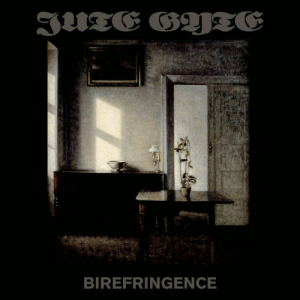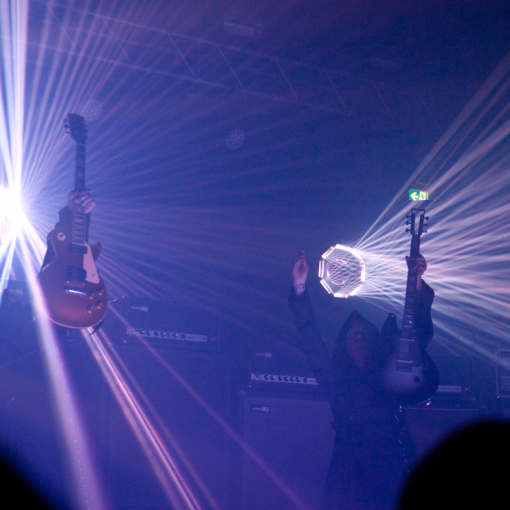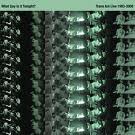 Jute Gyte are somewhere out on the periphery of metal doing something that could probably best be described as “amazing”. It’s a one-man project of Adam Kalmbach, who has taken a look at metal and gone “I wonder what happens if I make something that’s a bit black metal, but using microtonal serialism” and then done exactly that.
Jute Gyte are somewhere out on the periphery of metal doing something that could probably best be described as “amazing”. It’s a one-man project of Adam Kalmbach, who has taken a look at metal and gone “I wonder what happens if I make something that’s a bit black metal, but using microtonal serialism” and then done exactly that.
Fundamentally, where this works for me is the point at which he’s decided that there’s very little suspense or tension in using circle of fifths composition (as most metal does), but there’s a load of fucking horrible sounds you can get from thinking about intervallic relationships outside equal temperament.
And if that’s all too tl;dr for you — black metal bangers that sound like being choked while being drowned.
Kalmbach writes of this that it’s written more freely than the last few. What this means in proper terms is that there’s less of the conceptual serial metal that’s been present on the last few records (see my review of the last EP) — so rather than working through a series of intervals or a canon pattern, it’s more traditionally metal. Despite sounding well more good than that. On the one hand, it’s possibly the easiest entry point. On the other, it’s still a formidable and very arch record. I don’t mean that to be disparaging — but Kalmbach’s modus operandi isn’t about repeating well-known tropes so much as it is taking methods from high composition, applying them to the body of metal, then submerging the whole thing in sulphuric acid. Arch in the sense of having concepts, arch in the sense of being poisonously satirical to how lazy the cruft of metal is. There are, importantly, a few moments of subtle pleasantness here. There’s a piece by Helmett Lachenmann, “Gran Torso”, in which there’s a very brief emergence of a beautiful, major pure interval, in amongst loads of not-quartetly sounds. It lasts just a second or two. There’s a piece on here, “Dissected Grace” (a reference to grace note maybe?) where guitar pitches glissandi around discordantly; against this back appears some tonally static keyboard sounds. Bizarrely, it starts to apprehend a way more major key feeling than the intricate microtonal surroundings. It’s a similar feeling to the Lachenmann, finding those moments of beauty in amongst a cataclysmic, funereal dirge.Probably one of Jute Gyte’s boldest qualities is how tricky it is to describe. I’ve heard a fair amount of metal that purports to be compositionally interesting; but without a robust understanding of harmonic relations, I just find that distortion masks the ability to make something really discordant. Which is to say, metal rarely moves harmonically much beyond the renaissance. This is all pretty conceptual, but it’s important to note that what Jute Gyte gets right is to undermine the tonality of most guitar-led music and record it well — part of the reasons this is so acidic is because even on a cheaper hi-fi, this sounds vile. I can’t really describe properly what it sounds like, but I’m pretty confident this doesn’t sound like much you’ve heard from the metal camp — and if that isn’t a recommendation then, well, I don’t really know what to tell you.
-Kev Nickells-



